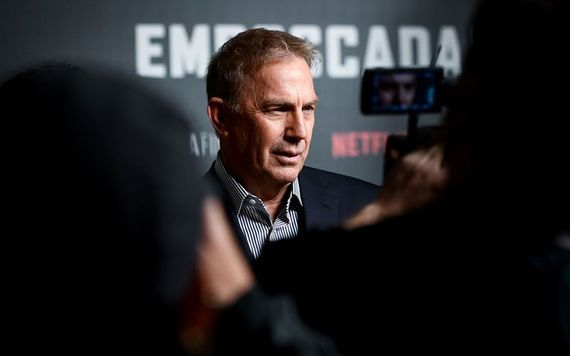After his 1990 hit "Dances with Wolves," which won seven Academy Awards including Best Picture and Best Director, Costner could have made just about anything he wanted. It turns out the Michael Collins’ story was what he wanted to do next.
In fact, Neil Jordan, who directed the 1996 film "Michael Collins," has said that Costner wanted to play the Big Fella in the movie but the part went to Liam Neeson instead.
Read More: “Michael Collins” director Neil Jordan donates archives to National Library of Ireland
Joe.ie reports that Costner was so committed to the project that he moved to Ireland and spent time in West Cork researching Collins’ life. There was even a script written by Eoghan Harris.
Costner is currently starring in"The Highwaymen," which released on Netflix on March 29. During an interview about the film, Costner revealed he still has plans to make that movie about Michael Collins.
"I wanted to make the Michael Collins story, I still do. I know it was made by another director (Neil Jordan) but that's not the story I was going to make. I love the epic notion of Michael Collins. I'd still like to make that movie someday. I found him to be an incredible person that was compromised by politics. His story is coming up more and more now. He was a dynamic person that was caught in politics. For me, Michael Collins is a large reason why I lived in Ireland," said Costner.
Read More: The most amazing thing Michael Collins ever said
Costner said that Eoghan Harris’ script resembled David Lean's epic drama, "Lawrence Of Arabia," in its scope.

Kevin Costner.
"There was a final line in the script that said 'God Ireland, I love you' and that was his final line in it. While it's a fictitious line in the movie, I think it encapsulated who he was. That always affected me. I thought the script from Eoghan Harris was just superior. It was an epic. It was like a real Lawrence Of Arabia look at Collins."
Would you like a second Michael Collins movie? Let us know in the comments section, below.
* Originally published in March 2019.




Comments